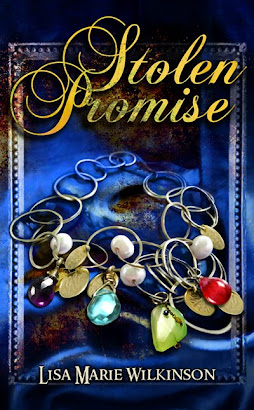
How does the world’s biggest coward become a published author? What options are available to a writer who lacks the courage to query agents? Is there any hope for a wordsmith who cannot bring herself to trust her beloved literary creation to that embodiment of anonymity known as the publishing house slush pile?
For this writer, the answer was a baby step called the chapter contest. No form rejections. No unanswered e-mails. Only the expectation of objective feedback provided by a published author or at the very least, by a trained judge.
While perusing my copy of Romance Writers Report, a publication of Romance Writers of America, I noticed many of the Romance Writers of America chapters held contests in order to provide constructive criticism to aspiring romance writers. The final judge was usually an agent or an editor from a romance-friendly publisher. How cool was that? I thought. If one submitted a judge-pleasing entry, the end result was that the partial manuscript could conceivably bypass the entire intimidating pitch process and land on an editor’s desk with the foregone commitment that it would be read.
I was prompted to enter my first contest by the desire to discover if my dream of publication was even remotely attainable. There would be no loss of face if my submission proved to be particularly inept because my identity was a secret closely guarded by the contest coordinator. My submission was assigned a code number and matched to a similarly unidentified first round judge. All contest coordinators and judges donate their time, and there is usually a nominal entry fee paid by the contestant. A chapter whose contest has earned a good reputation (a proven track record of picking winners who went on to be published) can look forward to their contest providing income to offset chapter expenses.
Did I final my first time out? No. But I received something much more valuable at that time than the ego-boost that a final would have provided. I received mentoring from an unexpected source, and encouragement. When my score sheets arrived in the mail, I was surprised to find that one published author judge on the panel had gone to a great deal of trouble to note what she felt was good about my entry, and to call attention to aspects of craft that could be improved. She added that she was impressed by my entry and expected to find my book on her local store shelf one day. She remained anonymous, so I was never able to properly thank her, other than through a note forwarded by the contest coordinator to my nameless mentor.
Those comments from one anonymous, kind-hearted judge served to light a fire under me. I studied her remarks, recognized the value in the advice she had given me, and began revising my manuscript. I entered the revision in another contest, and later received word my entry was a finalist. A few weeks after that, I received word that my entry had won. Although this did not guarantee a sale, it was a critical milestone for me because it gave me hope.
How did the contest eventually lead to “The Call” informing me of a sale? Medallion Press senior editor Helen Rosburg judged the Florida RWA chapter Golden Palm contest and requested the full manuscript from me. I mailed the manuscript on Valentine’s Day and I received “The Call” on February 27th from the author liaison at Medallion. Not only were they interested in publishing my historical romance, but they were excited by the prospect!
Medallion Press published “Fire at Midnight” in March, 2009 and my second historical romance novel, “Stolen Promise,” was published in March of 2010.
Are there any pitfalls to contesting? There can be, of course. Few things in life are perfect, and contests are no exception. Untrained judges, apathetic contest coordinators, vague comments or even deliberately cruel feedback goes with the territory, but these are not the norm. I give credit to the RWA chapter contest circuit and one anonymous published author who took the time to put together an insightful critique and offer encouragement to an aspiring writer who lacked confidence. It made all the difference for me.
I have noticed a trend over the last few years where winning author names from the RWA chapter contest circuit are hitting bookstore shelves. To name a few: Courtney Milan, Kris Kennedy, Christie Craig, Helen Scott-Taylor, Carla Hughes, Christine Wells, Stacey Lynn Reimer, J.L. Wilson, Cat Lindler, Jennifer Haymore, Kathleen (Kaki) Warner, Jenny Gardiner, Judi Fennell, Caroline Fyffe, Kristina McMorris, Kimberly Killion, Angie Fox, Kathryn Dennis…to name a few!
There is even a blog dedicated to Contest Divas:
http://contestdivas.blogspot.comAnd, once a contest diva, always a contest diva! Once a writer becomes ineligible to enter the contests for unpublished writers, there are always the contests for published authors, plus the opportunity to give back by offering to serve as a contest judge. My debut novel, Fire at Midnight, was recently named a USA Book News Best Books of 2009 winner, expanding its contest career to include success in published novel competitions.
For an aspiring writer who isn’t quite ready to tread the waters of the NY publishing world, dipping a toe in the chapter contest kiddie pool might be an appropriate first step!

Lisa Marie

 Miranda Rohan, the heroine in book three of the House of Rohan trilogy, is abducted and ruined as part of a revenge plan concocted by Lucien de Malheur, a criminal known as The Scorpion who blames Miranda’s brother for the suicide death of de Malheur’s sister.
Miranda Rohan, the heroine in book three of the House of Rohan trilogy, is abducted and ruined as part of a revenge plan concocted by Lucien de Malheur, a criminal known as The Scorpion who blames Miranda’s brother for the suicide death of de Malheur’s sister.



















